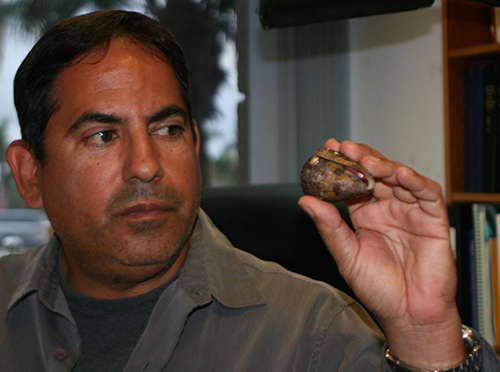Scientists from Florida Atlantic University report that the venom from cone snails may provide leads for the detection and possible treatment of some cancers and addictions. Frank Marí, Ph.D., professor in the department of chemistry and biochemistry in FAU’s Charles E. Schmidt College of Science published a study (“Alanine Scan of α-Conotoxin RegIIA Reveals a Selective α3β4 Nicotinic Acetylcholine Receptor Antagonist”) detailing his team’s findings in the Journal of Biological Chemistry.
“The venom produced by these animals immobilizes prey, which can be worms, other snails and fish,” said Dr. Marí. “The venom is an extraordinary complex mixture of compounds with medicinal properties.”
The venom components selectively target cells in the body and make them valuable drug leads and powerful molecular tools for understanding the human body's processes, according to Dr. Mari. One class of venom components is the alpha-conotoxins, named so because they target nicotinic receptors that are central to a range of diseases such as Alzheimer's disease, schizophrenia, tobacco addiction, and lung cancer.
The venom of a particular species of cone snail, Conus regius, collected by Dr. Marí’s group at the Florida Keys, is particularly rich in alpha conotoxins. Aldo Franco, Ph.D., who worked in Dr. Marí's lab, described more than ten new alpha-conotoxins in his Ph.D. dissertation at FAU. Among these, they found RegIIA, a compound that potently blocked the alpha3beta4 nicotinic receptor. This particular receptor when activated can be associated with lung cancer and nicotine addiction.
“Alanine scanning mutagenesis and molecular dynamic simulations of RegIIA revealed Asn11 and Asn12 confer improved selectivity at α3β4 nAChR,” wrote the investigators. “We synthesized the [N11A,N12A]RegIIA analog that selectively inhibits α3β4. These findings could be used to develop α3β4-selective drugs to treat lung cancer.”
“We investigated in detail how RegIIA interacts with the alpha3beta4 nicotinic receptors and embarked on engineering new compounds that were more specific toward alpha3beta4 receptors and not other nicotinic receptors,” said Dr. Marí. “Our aim is to open new avenues for cancer and addiction research inspired on compounds from marine animals.”


